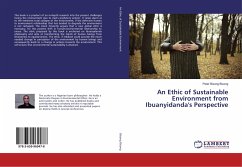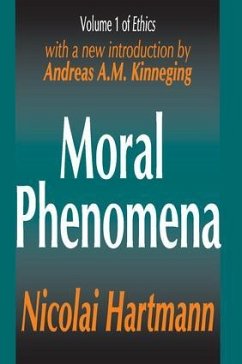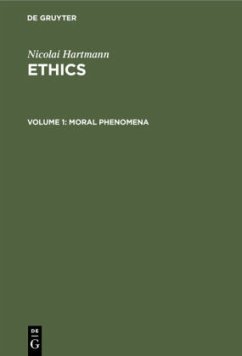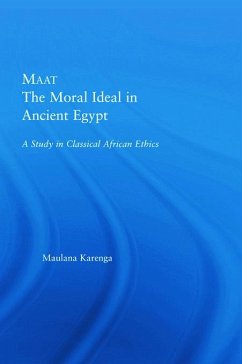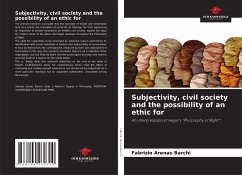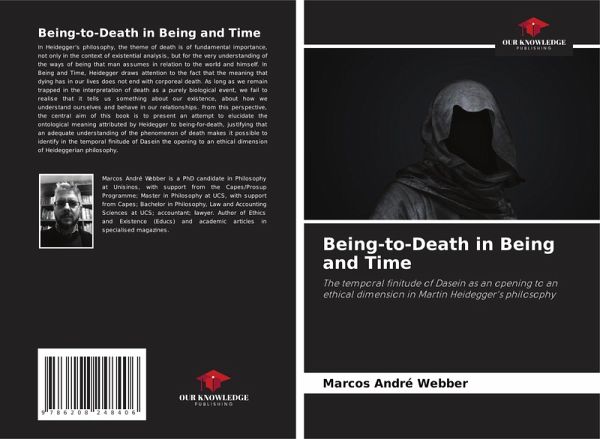
Being-to-Death in Being and Time
The temporal finitude of Dasein as an opening to an ethical dimension in Martin Heidegger's philosophy
Versandkostenfrei!
Versandfertig in 6-10 Tagen
15,99 €
inkl. MwSt.

PAYBACK Punkte
8 °P sammeln!
In Heidegger's philosophy, the theme of death is of fundamental importance, not only in the context of existential analysis, but for the very understanding of the ways of being that man assumes in relation to the world and himself. In Being and Time, Heidegger draws attention to the fact that the meaning that dying has in our lives does not end with corporeal death. As long as we remain trapped in the interpretation of death as a purely biological event, we fail to realise that it tells us something about our existence, about how we understand ourselves and behave in our relationships. From th...
In Heidegger's philosophy, the theme of death is of fundamental importance, not only in the context of existential analysis, but for the very understanding of the ways of being that man assumes in relation to the world and himself. In Being and Time, Heidegger draws attention to the fact that the meaning that dying has in our lives does not end with corporeal death. As long as we remain trapped in the interpretation of death as a purely biological event, we fail to realise that it tells us something about our existence, about how we understand ourselves and behave in our relationships. From this perspective, the central aim of this book is to present an attempt to elucidate the ontological meaning attributed by Heidegger to being-for-death, justifying that an adequate understanding of the phenomenon of death makes it possible to identify in the temporal finitude of Dasein the opening to an ethical dimension of Heideggerian philosophy.




